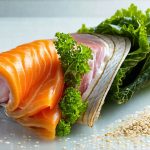Bloating is an incredibly common digestive issue impacting millions worldwide, often leaving individuals feeling uncomfortable, self-conscious, and limited in their daily activities. It’s not always about what you eat, but how much and how quickly you consume it. Many people experience bloating not because of specific food intolerances (though those certainly exist), but rather from overwhelming the digestive system with excessively large meals, or rapidly consuming foods that require more extensive breakdown. This article will explore strategies centered around low-volume meal approaches – techniques to minimize digestive distress and prevent those frustrating bloating episodes, focusing on practical adjustments you can make to your eating habits. We’ll delve into portion control, mindful eating practices, and food choices that naturally support easier digestion.
Understanding the root causes of bloating is crucial for effective management. The digestive system works best when given manageable workloads. Overeating stretches the stomach and intestines, potentially leading to gas buildup, altered gut motility (the speed at which food moves through your system), and increased pressure. Rapid eating introduces air into the digestive tract, exacerbating these issues. Furthermore, certain combinations of foods or a lack of fiber can contribute to fermentation in the colon, resulting in uncomfortable bloating. This isn’t about deprivation; it’s about optimizing your relationship with food to support comfortable digestion and overall wellbeing. It is important to note that persistent or severe bloating should be discussed with a healthcare professional to rule out underlying medical conditions.
Portion Control & Meal Frequency
Portion control is arguably the most impactful step you can take towards reducing bloating. We’ve become accustomed to oversized portions, often driven by cultural norms and marketing pressures. Re-evaluating your serving sizes – even slightly – can make a dramatic difference. Visual cues are helpful: use smaller plates, measure food initially to get a sense of appropriate amounts, and consciously ask yourself if you’re truly hungry before taking seconds. Focus on filling your plate with nutrient-dense foods first, leaving less room for potentially bloating triggers in excess. This isn’t about strict dieting; it’s about respecting your body’s capacity.
Increasing meal frequency, while reducing the size of each meal, can also be incredibly beneficial. Instead of three large meals a day, consider opting for five or six smaller meals or snacks. This approach keeps the digestive system consistently engaged without overwhelming it. Think of it as providing a steady stream of manageable work, rather than sporadic bursts of intense activity. This strategy is particularly effective for individuals prone to bloating because it prevents significant stomach distension and reduces the likelihood of undigested food reaching the colon where fermentation occurs.
The concept of “Hara Hachi Bu,” originating from Okinawan culture, embodies this principle beautifully – eating until you are 80% full. It requires mindful awareness during meals, paying attention to your body’s signals of satiety rather than relying on finishing everything on your plate. This practice promotes a healthier relationship with food and minimizes the risk of overeating and subsequent bloating. It takes practice, but the benefits – both digestive and overall health-related – are well worth the effort.
Mindful Eating Practices for Bloat Prevention
Mindful eating is more than just slowing down; it’s about fully engaging your senses during meals. Before you begin to eat, take a few deep breaths and center yourself. Observe your food: its colors, textures, and aromas. As you chew, pay attention to the flavors and how they evolve in your mouth. Slowing down allows your brain time to register fullness signals, preventing overeating and reducing digestive stress.
Chewing thoroughly is paramount. Digestion begins in the mouth with saliva containing enzymes that break down carbohydrates. Insufficient chewing forces the stomach and intestines to work harder, increasing the risk of bloating. Aim for at least 20-30 chews per bite. This may seem excessive, but it significantly eases the burden on your digestive system. It’s a simple habit change with profound benefits.
Avoid distractions during meals. Turn off the TV, put away your phone, and focus solely on your food. Distracted eating often leads to mindless consumption, causing you to eat faster and in larger quantities without fully registering what you’re taking in. Creating a peaceful and focused environment around mealtimes enhances both enjoyment and digestion. Perhaps planning meals ahead of time can help with this; consider everyday meals that are easy to digest.
Hydration & Fiber: A Delicate Balance
Adequate hydration is vital for optimal digestion. Water helps move food through the digestive tract and prevents constipation, a major contributor to bloating. Aim for at least eight glasses of water per day, but adjust based on your activity level and climate. Sipping water throughout the day, rather than gulping large amounts with meals, can also help prevent excessive gas buildup.
Fiber is essential for gut health, but it’s a double-edged sword when it comes to bloating. While fiber promotes regularity and supports beneficial gut bacteria, suddenly increasing your intake can actually exacerbate bloating. Introduce fiber gradually, allowing your digestive system time to adapt. Focus on soluble fiber sources like oats, applesauce, and beans, which are less likely to cause gas than insoluble fibers found in wheat bran or raw vegetables.
- Consider a food journal to track how different fiber types affect you personally.
- Combine increased fiber intake with sufficient hydration.
- Avoid consuming large quantities of high-fiber foods at once.
- If bloating is persistent, how to deal with bloating may be a helpful resource.
Food Choices That Support Digestion
Certain foods are naturally easier to digest than others and can help minimize bloating. Ginger, peppermint, and chamomile have all been traditionally used to soothe digestive discomfort. Incorporating these into your diet – as teas, spices, or supplements (with a healthcare professional’s guidance) – may offer relief. Lean proteins like fish and chicken are generally well-tolerated, while fatty foods can slow down digestion and increase bloating risk.
Fermented foods, such as yogurt with live cultures, kefir, sauerkraut, and kimchi, introduce beneficial probiotics to the gut, promoting a healthy microbiome. A balanced gut microbiome is crucial for efficient digestion and reduced gas production. However, be mindful that some fermented foods may contain ingredients that trigger sensitivity in certain individuals, so start slowly and monitor your response.
- Prioritize whole, unprocessed foods whenever possible.
- Limit consumption of artificial sweeteners, carbonated beverages, and excessive sugar.
- Be mindful of food sensitivities or intolerances; consider an elimination diet under professional guidance if you suspect a specific issue. For those with reflux, best meal timing is also key to reducing bloating.
This approach to low-volume meals isn’t about restrictive dieting or deprivation. It’s about cultivating a more harmonious relationship with food, respecting your body’s digestive capacity, and making conscious choices that support comfortable digestion and overall wellbeing. By incorporating these strategies – portion control, mindful eating, hydration management, and thoughtful food selection – you can significantly reduce the frequency and severity of bloating episodes, reclaiming comfort and confidence in your daily life. Remember to listen to your body, adjust these guidelines to suit your individual needs, and seek professional guidance if you experience persistent or severe digestive issues. Post-meal routines can also help minimize discomfort after eating. If traveling causes bloating, remember to consider preventing bloating when traveling. Lastly, digestive enzymes can also aid in the digestion process.


















